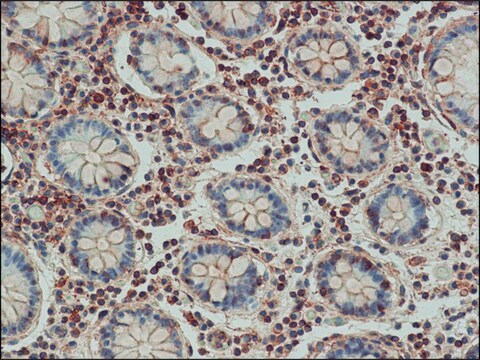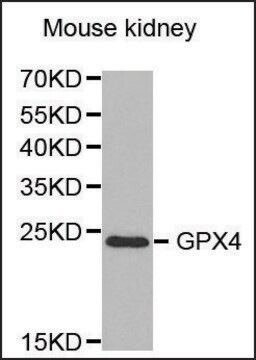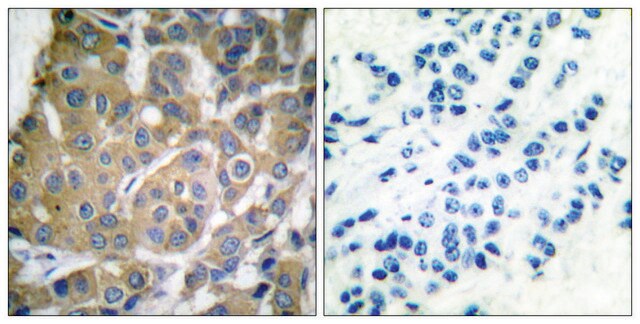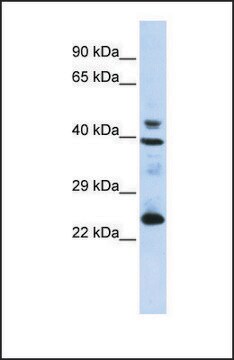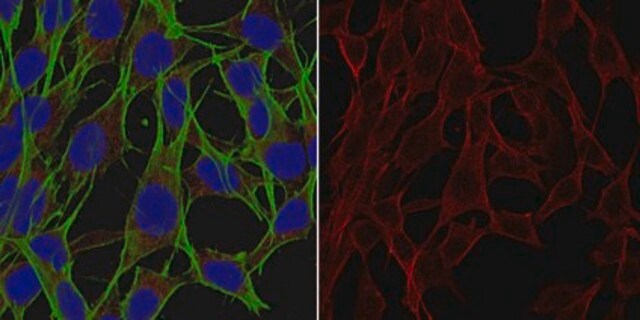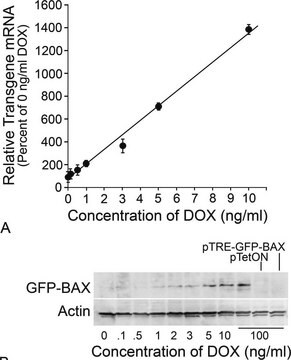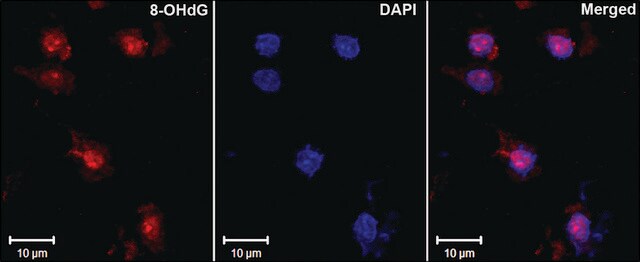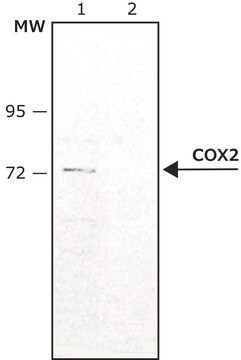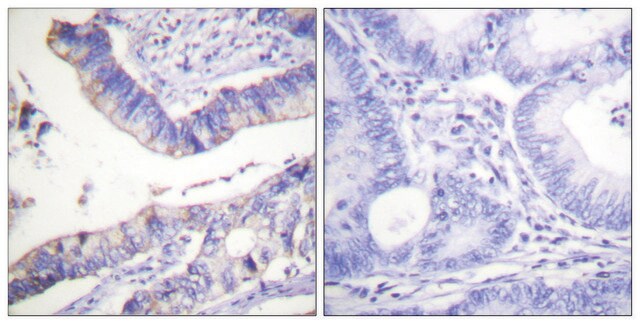MABF1969
Anti-Glutathione Peroxidase 4 Antibody, clone Mab63-1
clone Mab63-1, from mouse, purified by affinity chromatography
Synonym(s):
Phospholipid hydroperoxide glutathione peroxidase cytosolic, cGPx4, PHGPx, Glutathione peroxidase 4, GPx-4, GSHPx-4
About This Item
Recommended Products
biological source
mouse
Quality Level
antibody form
purified immunoglobulin
antibody product type
primary antibodies
clone
Mab63-1, monoclonal
purified by
affinity chromatography
species reactivity
human, mouse
packaging
antibody small pack of 25 μg
technique(s)
dot blot: suitable
electron microscopy: suitable
immunohistochemistry: suitable (paraffin)
immunoprecipitation (IP): suitable
western blot: suitable
isotype
IgG2aκ
NCBI accession no.
UniProt accession no.
shipped in
ambient
target post-translational modification
unmodified
Gene Information
human ... GPX4(2879)
General description
The cytosolic isoform is ubiquitously expressed at moderate levels in most mammalian cells. On the other hand, mitochondrial and nuclear isoforms are overexpressed in spermatoid cells. Clone Mab63-1 specifically recognizes cGPx4 in human and its ortholog in mouse. However, it does not recognize rat GPx4. GPx4 is a considered to be a moonlighting protein that has been implicated in anti-oxidative defense, gene expression regulation, and programmed cell death, and as a structural protein in spermatogenesis. Homozygous GPx4-deficient mice are reported to die utero before E7.5. Similarly, homozygous mice expressing catalytically inactive GPx4 variants (Sec46Ala/Ser mutant) do not survive beyond the 7th day of embryogenesis. (Ref.: Borchert, A., et al (2010). Immunol. Lett. 133 (2); 85-93).
Specificity
Immunogen
Application
Immunoprecipitation Analysis: A representative lot detected Glutathione Peroxidase 4 in Immunoprecipitation applications (Borchert, A., et. al. (2010). Immunol Lett. 133(2):85-93).
Immunohistochemistry Analysis: A representative lot detected Glutathione Peroxidase 4 in Immunohistochemistry applications (Borchert, A., et. al. (2010). Immunol Lett. 133(2):85-93; Brutsch, S.H., et. al. (2015). Antioxid Redox Signal. 22(4):281-93).
Western Blotting Analysis: A representative lot detected Glutathione Peroxidase 4 in Western Blotting applications (Brutsch, S.H., et. al. (2015). Antioxid Redox Signal. 22(4):281-93; Borchert, A., et. al. (2010). Immunol Lett. 133(2):85-93).
Dot Blot Analysis: A representative lot detected Glutathione Peroxidase 4 in Dot Blot applications (Borchert, A., et. al. (2010). Immunol Lett. 133(2):85-93).
Electron Microscopy Analysis: A representative lot detected Glutathione Peroxidase 4 in Electron Microscopy applications (Brutsch, S.H., et. al. (2016). J Biol Chem. 291(45):23578-23588).
Inflammation & Immunology
Quality
Western Blotting Analysis: 2 µg/mL of this antibody detected Glutathione Peroxidase 4 in lysate of HEK293 cells transfected with Gpx4.
Target description
Physical form
Storage and Stability
Other Notes
Disclaimer
Not finding the right product?
Try our Product Selector Tool.
Storage Class Code
12 - Non Combustible Liquids
WGK
WGK 1
Flash Point(F)
does not flash
Flash Point(C)
does not flash
Regulatory Listings
Regulatory Listings are mainly provided for chemical products. Only limited information can be provided here for non-chemical products. No entry means none of the components are listed. It is the user’s obligation to ensure the safe and legal use of the product.
JAN Code
MABF1969-25UG:
MABF1969:
Certificates of Analysis (COA)
Search for Certificates of Analysis (COA) by entering the products Lot/Batch Number. Lot and Batch Numbers can be found on a product’s label following the words ‘Lot’ or ‘Batch’.
Already Own This Product?
Find documentation for the products that you have recently purchased in the Document Library.
Our team of scientists has experience in all areas of research including Life Science, Material Science, Chemical Synthesis, Chromatography, Analytical and many others.
Contact Technical Service